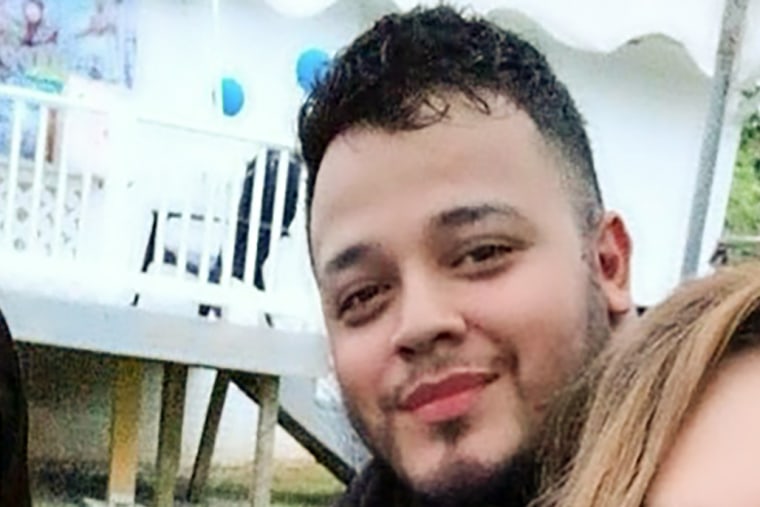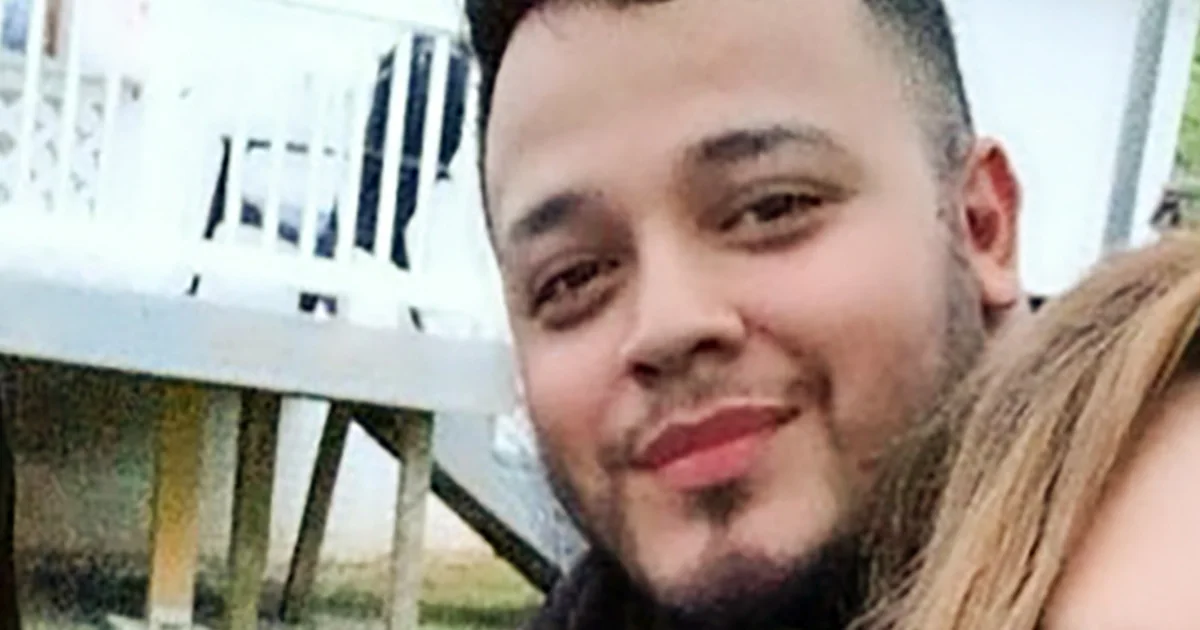The Trump administration released a series of documents Wednesday that revealed new details in the case of Kilmar Abrego Garcia, a Maryland man deported to El Salvador a month ago in what a government lawyer called an “administrative error.”
The release comes after weeks of pressure on the government to prove its contention that Abrego Garcia was a member of the MS-13 gang. The Trump administration sent him to a notorious mega-prison in the Central American country as part of its promised deportation program of alleged criminals.
The Department of Justice shared records, not previously made public, detailing how police officers in Maryland assessed Abrego Garcia was a member of the MS-13 gang during a 2019 arrest. He had no criminal history at the time, which the documents also state, and his attorneys have denied that he is a gang member.
In a document titled “gang field interview sheet,” the Prince George’s County Police Department detailed how in March 2019 they approached Abrego Garcia along with three others for loitering at a Home Depot parking lot in Hyattsville. Abrego Garcia said in a court filing he was there looking for day labor work.
Police said he was wearing “a Chicago Bulls hat and a hoodie with rolls of money covering the eyes, ears and mouth of the presidents” on the bills.
The officers said such insignia — indicating “ver, oir, y callar” or “see no evil, hear no evil and say no evil” — was “indicative of the Hispanic gang culture.” The officers said they consulted with a reliable confidential source, who “advised that [Abrego Garcia] is the rank of ‘Chequeo‘ with the moniker of ‘Chele’” in the gang.
Abrego Garcia was handed over to immigration authorities, and he wound his way through the legal process. Later in 2019, an immigration judge barred Abrego Garcia from being sent to El Salvador. That order said he proved he had a “well-founded fear of future persecution” from local gangs and was granted a withholding of removal to the country, which allowed him to stay in the U.S. temporarily and receive a work permit.
Years later, in 2025, Abrego Garcia was stopped by immigration agents in an Ikea parking lot. He was deported to El Salvador days later on March 15.
The Supreme Court ruled last week that the government must “facilitate” his release from the prison. El Salvador President Nayib Bukele said during a meeting at the White House this week that he would not release Abrego Garcia.
In response to social media posts made by DHS on Wednesday, his attorneys noted: “This statement underscores the importance of due process, access to counsel, and the government’s obligation to comply with the United States Supreme Court’s unanimous decision.”
Department of Homeland Security Secretary Kristi Noem said in a statement Wednesday, “We hear far too much in the mainstream media about sob stories of gang members and criminal illegals and not enough about their victims.”

Kilmar Abrego Garcia.Murray Osorio PLLC via AP
Police during the 2019 arrest determined that two other people who were with Abrego Garcia in the Home Depot parking lot were gang members, citing one man’s criminal history and another man’s tattoos, as well as information from an unidentified person who was a “past proven and reliable source of information.”
The documents said that the four men said they were citizens of El Salvador and were “present in the United States illegally” and did not have immigration documents on them.
Another document released Wednesday, from the Department of Homeland Security in 2019, said that police identified two men, one of whom was Abrego Garcia, as being having been previously detained for a murder investigation. Abrego Garcia denied being connected to a murder investigation, the documents state, and was never charged.
A page of the document contains a contradiction — at one point it says that Abrego Garcia did not claim a fear of returning to his country, but later in the same document says he did claim fear of returning to El Salvador.
The document said that Abrego Garcia claimed he had presented sufficient evidence to refute the gang allegation, including character references and his lack of criminal record, minus traffic offenses.
In another document from the DOJ’s Executive Office of Immigration Review, a court agreed to deny Abrego Garcia bond after his 2019 arrest outside the Home Depot, and wrote that the allegation that he is a gang member “appears to be trustworthy and is supported by other evidence in the record” in the Prince George’s Police Department documents.
“The reason for the Respondent’s arrest given on his Form 1-213 does appear at odds with the Gang Field Interview Sheet, which states that the Respondent was approached because he and others were loitering outside of Home Depot,” the document said, but added that it still found the allegations of his gang membership to be supported.
Abrego Garcia responded “there is no reliable evidence in the record to support” that he is a member of MS-13 and that the allegation “is based on hearsay relayed by a confidential source.”
Aside from the new documents, the Department of Homeland Security posted on social media earlier Wednesday that Abrego Garcia’s wife had sought a temporary protective order against him in 2021. The case was ultimately dismissed. Abrego Garcia’s wife, Jennifer Vasquez Sura, has been a strong vocal supporter of her husband and has fought for his return.
“After surviving domestic violence in a previous relationship, I acted out of caution after a disagreement with Kilmar by seeking a civil protective order in case things escalated,” Vasquez Sura said in a statement Wednesday. “Things did not escalate, and I decided not to follow through with the civil court process.
“No one is perfect, and no marriage is perfect. That is not a justification for ICE’s action of abducting him and deporting him to a country where he was supposed to be protected from deportation,” she added.
Meanwhile, the Trump administration, Abrego Garcia’s lawyers and an appeals court judge continue to litigate the Supreme Court’s instruction that the government facilitate his release.
The Trump administration on Wednesday afternoon filed an appeal of U.S. District Judge Paula Xinis’ April 10 order to the 4th Circuit Court of Appeals in the case, where she directed the Trump administration to “take all available steps to facilitate the return of Abrego Garcia to the United States as soon as possible.”
Xinis questioned the evidence an immigration judge used to make the determination that Abrego Garcia is a gang member. She said in a ruling that the man has no criminal record in the U.S. or El Salvador, and that the “‘evidence’ against Abrego Garcia consisted only of his Chicago Bulls hat and hoodie, and a vague, uncorroborated allegation from a confidential informant claiming he belonged to MS-13’s ‘Western’ clique in New York — a place he has never lived.”
Xinis said on Tuesday that she was considering contempt proceedings against the Trump administration.
She had ordered the government to supply evidence of efforts they have taken to “facilitate” the release of Abrego Garcia and on Tuesday criticized the government’s lack of response.
“I’ve gotten nothing,” Xinis said. “I’ve gotten no real response, and no real legal justification for not answering.”
In their court-ordered daily status update, DHS general counsel Joseph Mazzara wrote, “Given the government’s prior clear and unequivocal notice to the court regarding how the government will facilitate Abrego Garcia’s return within the counters of existing law and regulation, there are no further updates.”
